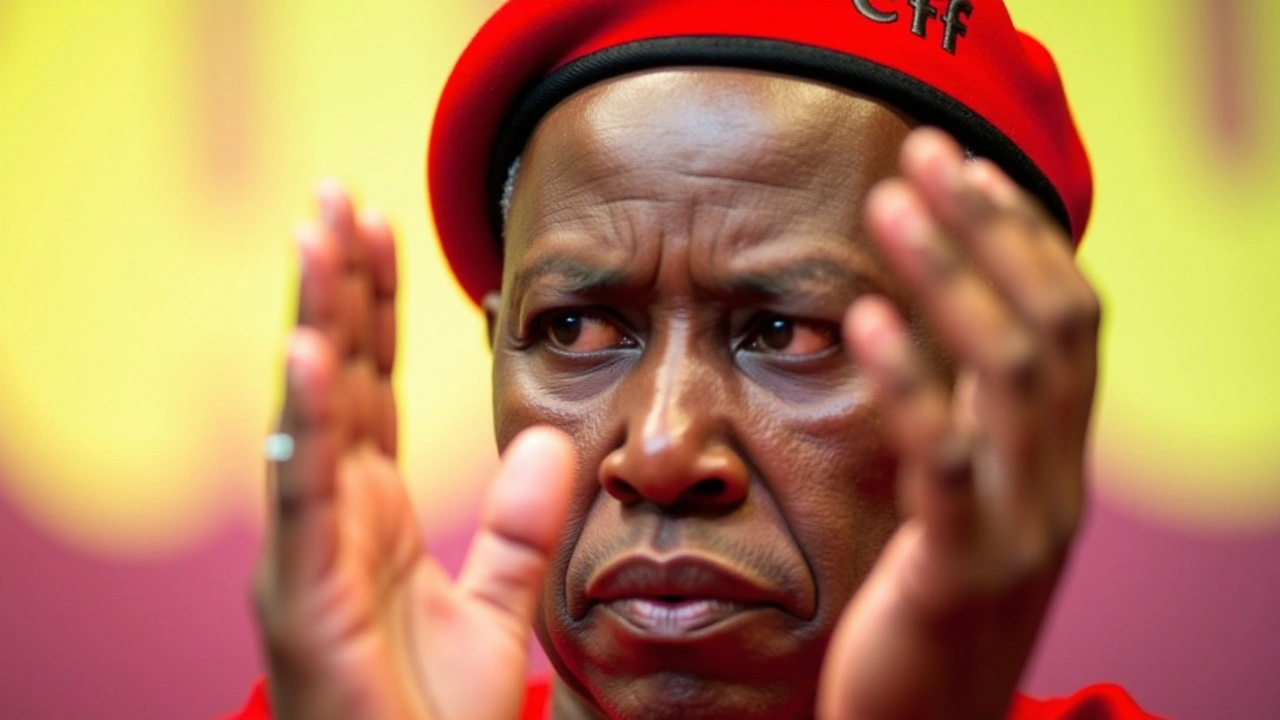Julius Malema on EFF Challenges Amid Mpofu's Departure to MK Party
The Political Pulse in South Africa: Julius Malema's Perspective
In the political landscape of South Africa, intrigues and realignments are not uncommon, yet they invariably attract immense public attention. The recent decision by Dali Mpofu to align himself with the newly born political faction, stemming from the MK (Umkhonto we Sizwe) Military Veterans Association, is the latest stirring in the South African political arena. This move has generated curiosity about the internal dynamics of the Economic Freedom Fighters (EFF) and the stability of its leadership under Julius Malema.
Julius Malema's Reaction to Mpofu's Departure
Addressing what some might perceive as a potential crisis, Julius Malema, the fiery leader of the EFF, exhibited nonchalance that may seem surprising to outside observers. Through the modern political vehicle of social media, Malema made it clear that Dali Mpofu’s departure hadn’t perturbed his resolve. He suggested that Mpofu’s defection was anticipated and signifies just the beginning, implying there might be more defections looming on the horizon. His public response seemed to be managing not just internal perceptions but also trying to communicate a message of steadiness and readiness amidst change within his party.
The Implications of Mpofu's Alignment with the MK Party
The formation of this fresh political entity sprouted from the once-revered MK Military Veterans Association and could be seen as an intriguing development itself. In an environment where affiliations are deeply woven into the political fabric, the alignment choices of figures like Mpofu are pregnant with implications for the broader strategic terrain. As for Mpofu’s shift, it suggests an envisioned alignment or possibly a disagreement with current trends within the EFF. This deviation brings up questions about whether ideological fissures or strategic divergences have widened in the EFF, prompting such a move.
Reading between the Lines: Internal Divisions in EFF
Within the labyrinth of political organizations, internal friction is a common tide. Malema's reluctance to publicly display discord masked concerns regarding loyalty and belief in long-term goals. Speculation from observers hints at factions within the party, seemingly indicated by Mpofu's decision. These factions could be aligned around differing strategic visions or preferred leadership styles, with implications potentially impacting the cohesion and electoral performance of the party. However, Malema’s nonchalance could insinuate either a mastery of managing these possible splits or an attempt to diminish their perceived significance.
Evolutions in Political Parties and Their Memberships
Political party dynamics often resemble a chess game. Members, just like pieces, make calculated moves impacting future configurations and trajectories. The departure of high-profile individuals like Mpofu projects ripples now and potential aftershocks for the party in coming contests. However, as political space shifts, such departures are sometimes necessary for evolution, allowing parties to refine and define their value propositions more clearly. Within this paradigm, Malema's suggestion that more shifts may occur is either cautionary realism or a strategic ploy cushioning against further perceived instability.
Malema's Leadership amidst Storms
The voyage of any political leader is fraught with waves and potential storms; Malema seems to embrace this turbulence as part of his leadership narrative. His tenure is marked by robust rhetoric and an unwavering vision to promote his agenda. Under such a regime, loyalty is a tested commodity, with deviances treated as opportunities to test the party's ideological resilience. Thus, whether or not additional defections ensue, Malema’s stewardship portrays a storyline of a leader either unshaken by the winds buffeting his ship or one banking on a stable core cadre of followers who espouse his vision.
Future Dynamics and Stability of the EFF
Amidst this backdrop, the EFF's journey forward will draw both intrigue and scrutiny. Whether these exits carve out a future of fractional alignments or rejuvenate core functions and strategies remains to be seen. It’s a dance of continuity, adaptation, and strategic recalibration that dominates party politics across continents. Malema’s consistent message of remaining unbowed suggests he perceives both an opportunity and a challenge in these events – an opportunity to strengthen internal cohesion, and a challenge in sustaining political momentum against the backdrop of a shifting national discourse.
